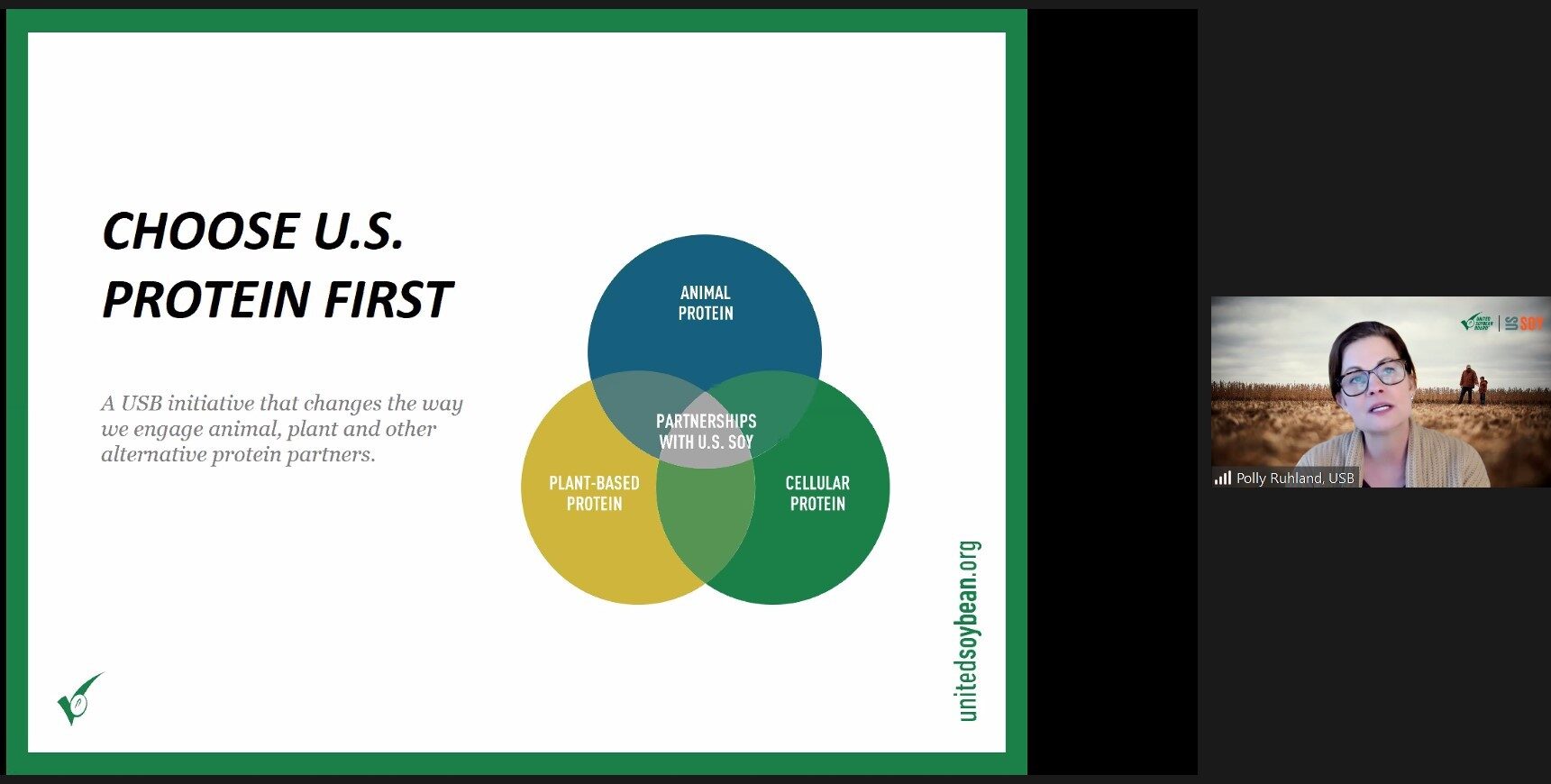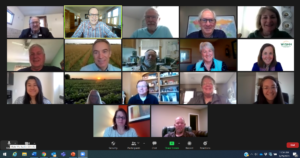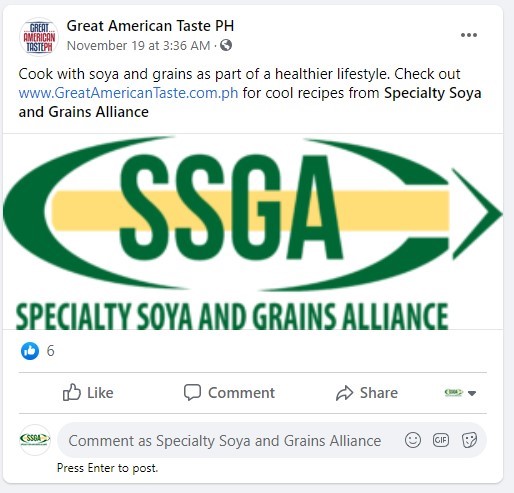 The demand for protein continues to rise around the world, and there is space for everyone involved in its production, United Soybean Board CEO Polly Ruhland said during the Specialty Soya and Grains Alliance’s 2020 Annual Meeting.
The demand for protein continues to rise around the world, and there is space for everyone involved in its production, United Soybean Board CEO Polly Ruhland said during the Specialty Soya and Grains Alliance’s 2020 Annual Meeting.
“We’re going to need protein of all kind, and it’s time to start thinking about that,” she said.
Ruhland delivered the keynote address during on Thursday, the second day of the two-day meeting, which was held virtually on Zoom due to COVID-19 gathering restrictions.
Speaking to members and allies of SSGA, which included growers, processors and shippers of U.S. identity-preserved soya and specialty grains, Ruhland said soy in human food around the globe “matters so much today.”
Restoring soy’s reputation – the “halo” that it enjoyed years ago – is key.
“It’s critical that we listen more closely to customers and consumers than ever before,” said Ruhland, who has been USB’s CEO since 2017.
Ruhland said she hopes to have SSGA as a partner on USB’s protein-first initiatives.
Soy, she said, can play a role in solving the world hunger problem, which, in turn, would play an important role in global sustainability.
More than 70 people logged on to the Zoom meeting for second day of the SSGA meeting, about the same number that participated on Day 1.
Thursday’s events also included SSGA’s annual business meeting and saw the election of Raquel Hansen and the re-election of Keith Schrader to its board of directors. Bob Sinner was later elected board chair after previously serving as vice-chair. Rob Prather was elected vice-chair, and Darwin Rader was elected secretary/treasurer.
The makeup of SSGA’s board of directors now includes:
Andy Bensend, AB Farms
Rick Brandenburger, Richland IFC
Adam Buckentine, The Redwood Group
Raquel Hansen, Pipeline Foods
Rob Prather, Global Processing (vice-chair)
Darwin Rader, Zeeland Farm Services, Inc. (secretary/treasurer)
Keith Schrader, Wheeling Grain Partnership
Bob Sinner, SB&B Foods (chair)
Petrich, the outgoing SSGA board chair, received special recognition as retiring board member as well as one of the first SSGA Alliance Honors. Petrich received the award for “Advancing SSGA.”
“You can understand why Curt has such a high level of integrity,” Sinner said. “On behalf of all of us, thank you for your committed and dedicated service.”
Said Petrich: “I appreciate the support I’ve been given from Bob, as well as the whole team. You’ve got a group of people here who are passionate about the organization, passionate about their business and passionate about our success.”
Other honors went to SSGA adviser Bruce Abbe (“Advancing Transportation”), SB&B’s Todd Sinner (“Advancing IP”) and the North Dakota Soybean Council (“Stewardship”).
Petrich also reviewed SSGA’s wins and challenges from 2020, and Executive Director Eric Wenberg presented an outlook for 2021 that included a rundown of projects and a robust calendar of events planned for the coming year.
The annual meeting concluded with an interview with organic farmer Carolyn Olson of Fairview Farm. Olson raises soybeans, corn, small grains and alfalfa near Cottonwood, Minn.
“When you raise something specific for someone and that thing is in demand, that’s a vey cool thing,” Olson said. “You want to raise something that’s desired. It is more work, but in the end, it’s worth it.”
SSGA’s annual meeting isn’t over quite yet. The meeting of the Competitive Shipping Action Team will take place 8-10 a.m. Tuesday, Dec. 8. And to see on-demand video reports from SSGA’s technical advisers for Europe, Southeast Asia and North Asia, please follow this link.
 Maffei, a native New Yorker who served two terms in the U.S. House of Representative as well as in the Department of Commerce for the Obama Administration, has served on the FMC as a commissioner since 2016.
Maffei, a native New Yorker who served two terms in the U.S. House of Representative as well as in the Department of Commerce for the Obama Administration, has served on the FMC as a commissioner since 2016.
 The two groups were joined by ASA
The two groups were joined by ASA 




